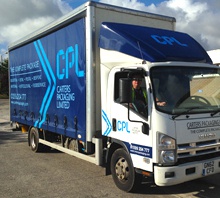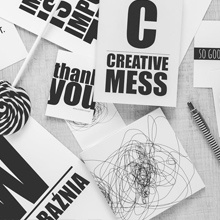REDUCE
We can certainly reduce the amounts of single use plastics we use. Where possible we can do this as an individual, however the major benefits of this will occur when big business adopts practises to reduce their use of plastic. A good illustration of this is the recent Marks & Spencer cauliflower steaks, which for many people was the straw that broke the camel’s back!
As with all packaging, it is difficult to comprehend the sheer volumes that are involved nationally, and although it is great that individuals and small businesses are committing to reduce their reliance on plastics, there must be this significant movement from the nationals to have the desired impact.
REUSE
One of the (many) benefits of some plastic packaging is that it can be reused. This is one of the best ways to reduce our carbon footprint and greenhouse emissions. Paper alternatives are often not robust enough for our glorious climate! A few spots of rain and a paper bag is unusable, whereas a plastic bag is often used several times and even ends its life as some form of bin liner (thus cutting down on the use of bin liners).
RECYCLE
As with reduction, government and big business need to do more. Collection schemes and recycling facilities need to be improved to enable us to deal appropriately with the volumes of waste that could be recycled if we had the capabilities. That said, we are recycling more than ever before and new systems are being implemented all the time. Obviously some materials are more easily recycled than others, and some contain recycled material already – so considering what type of material an item is made from and checking out its recycling credentials is important.
COMPOSTABLE/BIODEGRADABLE PRODUCTS MADE FROM PLANT STARCHES (PLA)
There are more and more items becoming available made from plant starch: maize, corn, potato, etc. As with all the alternatives, these products have their pro and cons. A thin bag made form PLA will decompose quicker than something like a PLA deli pot.
Pros: Derived from natural resources it can be constantly renewed. Eventually petroleum-based plastics will become difficult to source. Uses less energy and produces less greenhouse gases than plastic. Does not emit toxic fumes when incinerated.
Cons: Need specific factors to decompose including the presence of oxygen, water and heat.
Production of corn for packaging could drive up the price of corn as a food crop. Argument that vital natural resources are better used in food manufacture than packaging manufacture.
OXI DEGRADABLE PRODUCTS
These products are made from standard plastics, but have additives in them which is said to accelerate the degradation process. There is a swing away now from this type of bag, but those involved in its manufacture will give a compelling argument for its advantages: http://www.reverteplastics.com/oxobiodegradibility.php
PAPER
Paper products are widely deemed as environmentally friendly, and may well be so. However, one has to bear in mind that they are a lot heavier than plastic alternative, more voluminous and more resource intensive. Recycling paper involves acid and chemical treatments. However, paper when sourced correctly (FSC) is derived from naturally sustainable resources which is a big tick.
So there are many arguments for and against all of the packaging options. Basically each sector will lobby for its own industry’s products, and many of the arguments do not conclude in a clear cut verdict. As previously stated I encourage our customers to do their own research: it’s pretty amazing the misconceptions and myths that turn up! Ultimately, the best solution will depend on many factors such as product, application, geography, facilities, etc.




